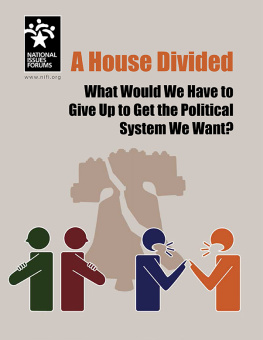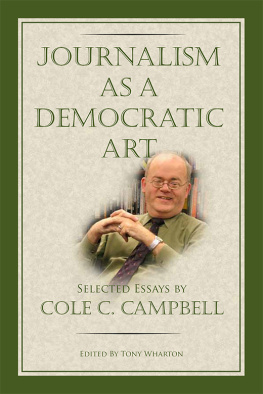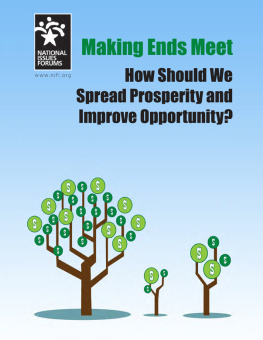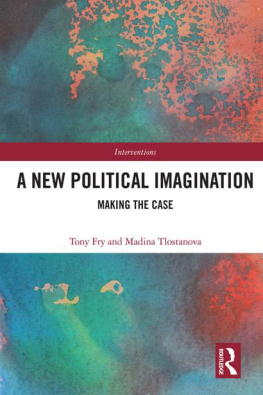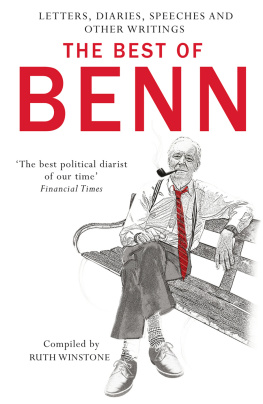What Would We Have to
Give Up to Get the Political
System We Want?
EVERY AMERICAN IS AFFECTED by the divisions and outrage that prevent us from making progress on urgent problems. This issue guide is designed to help people deliberate together about how we should approach the issue.
These are difficult questions, and there are no easy answers:
Should we require more accurate, respectful discussion in the media and online, or would that stifle free speech?
Should we reform politics and government to encourage compromise, or will that mean giving up on the changes we really need and want?
Should local communities set policies in areas like health care and the environment, or would that risk the progress weve made and make further progress nearly impossible?
Should we crack down on money in politics, or will people just find new ways to evade the rules?
WE ARE HAVING TROUBLE making important decisions and solving problems in the United States. Americans find it harder and harder to even talk with one another, and it is damaging in multiple ways:
Major problems, such as the national debt, immigration, health care, and Social Security get kicked down the road again and again. The US national debt, for example, rose above $21 trillion in 2018. The inability of policymakers to agree on annual budgets has routinely led to government shutdowns. Yet we appear unable to confront these or many other urgent problems.
Too few Americans vote or participate in public life. The most recent numbers show that people in many other developed countries vote at higher rates than Americans, many of them much higher. While recent national elections generated interest, local election turnout is generally low. There are also indications, according to a 2018 study from the University of Maryland, that the rate of volunteering has declined.
Source: Pew Research Center, 2018
Source: The Democracy Project, democracyprojectreport.org, 2018
We have lost confidence in our national institutions. A survey by the nonpartisan Pew Research Center, in December 2017, found that only 18 percent of Americans said they trusted the government in Washington to do whats right just about always or most of the time, a drastic decrease from even 15 years ago.
American politics is a bicycle with a rusty chain, flat tires, and no brakes, said Steve Chapman in the Chicago Tribune. Its broken, and its not taking any of us where we want to go.
Perhaps equally disturbing to many people is that, rather than working together to solve problems, we often seem to be simply shouting at one another. It has produced an atmosphere in which political differences have even led to acts of violence.
How did we get here? There are many possible reasons. The internet has unleashed a torrent of anonymous rage that has spilled over into public life. More money than ever before is flooding into political campaigns. Round-the-clock cable coverage demands constant drama to fuel ratings.
American politics is a bicycle with a rusty chain, flat tires, and no brakes. Its broken, and its not taking any of us where we want to go.
Steve Chapman, the Chicago Tribune
Calla Kessler/The Washington Post/Getty Images
Protesters march on the anniversary of the deadly Charlottesville demonstration in 2017 in which Heather Heyer was killed.
While people may differ over the causes, they agree on the effect: dysfunction. Six in ten Americans say significant changes are needed in the United States government, according to Pew Research. And an AP-NORC survey found that just 10 percent of Americans say they have a great deal of confidence in the political system overall; 38 percent say they have hardly any.
What should we do to get the political system we want? What should we do to revive our ability to work together on the most urgent problems? What are we willing to give up in order to do so?
This issue guide presents three options for deliberation about difficult problems for which there are no perfect solutions. Each option offers advantages as well as risks. And each reflects different ways of understanding what is at stake, forcing us to think about what matters most to us.
The research involved in developing this guide included interviews and conversations with Americans from all walks of life, as well as surveys of nonpartisan public opinion research, subject-matter scans, and reviews of initial drafts by people with direct experience with the subject.
Reduce
Dangerous,
Toxic Talk
WATCHING CABLE TELEVISION SHOWS or scrolling through web pages, it does not take long to find examples of Americans calling each other the worst possible names or making accusations that once would have shocked us but now merely join the torrent of rage. And it is not just intemperate talk; much of it is premeditated. Political candidates have accused their opponents of all sorts of thingsconnections to terrorists, for examplewithout any basis in fact.
If we want to solve pressing problems such as the national debt and Social Security, we should stop rewarding outrage and begin talking to each other like human beings again, according to this option. A 2018 study by the Pew Research Center found that in just two years, more people on both ends of the political spectrum had come to view their counterparts as holding extreme views.
Source: Cato Institute: Free Speech & Tolerance Survey, 2017
Its not that [television] hosts simply disagree with their opponents policies; their opponents are bad people, said Tufts University professor Sarah Sobieraj, who, along with her colleague Jeffrey M. Berry, examined the problem in

